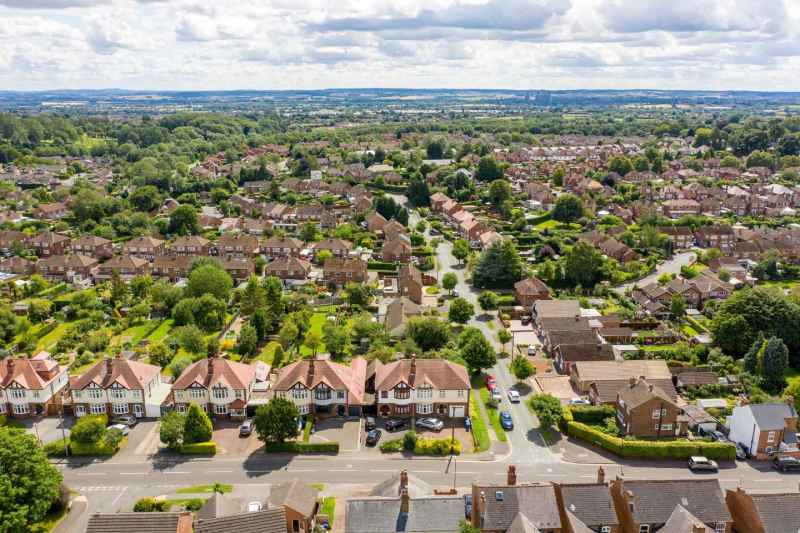For many of us, we grew up having a few goals in mind, one of which is owning our own home. But times have changed, and the dream of owning our own property can feel more elusive.
With rent prices on the rise, and unexpected costs often cropping up in our lives, the idea of buying a house may seem like a pipe dream. But we believe with the right planning and preparation, people can make that dream a reality.
That’s not to say that everyone can afford a house, but having an idea of the process, and how much money you need should help you to get an idea of where you need to be.
We want to make sure you have all the information you need to start the journey. That includes understanding deposits, mortgages, legal representation, and having an overall view of the process. But before we get into all that, let’s start with one of the most important questions any first-time buyer should ask.
What is a Deposit for a House?
Unless you’re very fortunate and have the full amount to pay for a house, you will have to borrow the money from the bank and pay it back via a mortgage. We’ll get more into what a mortgage is later but for now, we’re going to talk about something called a deposit.
Essentially a deposit is a percentage of the price of the house you pay upfront. For example, let’s say you find a house that’s £200,000. Unless you have £200,000 at your disposal, you’re going to have to borrow it from a mortgage lender.
The minimum deposit is usually 5%, however it’s advised that you pay as much as you can as this will give you better interest rates. For argument’s sake, let’s say you pay a 10% deposit, that would be £20,000.
There are many factors that go into the overall price of the house. Things like location, size and the housing market at the time will all have an impact on the price. It’s always worth doing a quick property search ahead of time. That way, you can get a general idea of the price for the kind of house you’re looking for. This will give you an idea of how much you need to save for a deposit.
What is a Mortgage?
Once you’ve agreed the amount to pay for a deposit for the house, you’ll need to borrow the rest from a mortgage provider.
Let’s use the example from earlier. You’ve done your property search, and decided that the kind of house you’re after is around £200,000. You’ve got 10% (£20,000) put to one side to pay the deposit. Then, you would borrow the £180,000 (plus interest) and pay it back in monthly instalments over an agreed amount of time. Although this period of time can range from 6 months to 40 years, you are most likely looking at 25 years. During the buying process, there will also be room to negotiate the house price, but having an idea of what you need will help you plan.
As you are borrowing money, this essentially means the house is collateral. Despite the house being your home, you need to keep up with your repayments. If you don’t keep up with the payments the bank will be able to seize the property.
This is why it’s so important to know exactly where you spend your money. What are your necessities? What’s your disposable income? Do you have debt repayments? Once you’ve figured all this out, you can make an educated decision on whether you can afford the mortgage repayments.
Making sure you know that you can afford the repayments is essential, as no one wants to lose their home. If you’re wondering how much this will cost, you can use a mortgage calculator to give you an idea of the monthly cost. You can then add this cost to your overall budget and figure out if this is a smart move financially.
Applying for a Mortgage
Applying for a mortgage sounds daunting, but if you’ve taken all the factors that we’ve discussed so far into consideration, it will make the process a lot easier. You can’t apply for a full mortgage until you have had an offer accepted, but you can apply for something called a mortgage in principle.
The mortgage in principle isn’t just for your benefit, as the lender will have the hopes that you will apply for a full mortgage with them once you’ve had your offer accepted. However, it is useful to have, especially if you don’t have a steady income (if you’re self employed, for example). Along with this, some estate agents will need this in order for you to move forward with making an offer on a house.
There are a few factors that a mortgage lender will look at to determine whether or not they will grant you a mortgage in principle. These include:
- Credit rating – You’ve probably heard of this before, but your credit rating is a measurement of how well you’ve managed your credit. If you’ve ever missed a payment, or made lots of applications for credit at once, it will be flagged and affect the overall rating. Most companies that measure your credit score will tell you how to improve it. Looking into this beforehand and making improvements where necessary is a good place to start.
- How much you earn – This might seem obvious, but mortgage providers will want to know what your income is, and this is a good indication of whether you’ll be able to afford the repayments. They tend to prefer steady income. If you are self-employed, you will have to provide more evidence of your income.
- Evidence of your outgoings – How much you earn is one thing, but lenders will also want to have a look at what your spending habits are. This will help them see if your spending will affect your mortgage repayments.
Once you’ve put in an offer on a property, and the previous owners have accepted it, you can apply for a full mortgage. This will cover the cost of the house after the deposit.
Getting the Right Legal Support
Buying a house can be a stressful time, and making sure you’ve got the right legal support can help you enjoy the process as much as possible.
Conveyancers are people who specialise in the buying and selling of properties. Although it’s not a legal requirement to be represented, it’s easy to miss things if you’re not trained to handle the complexities of these kinds of transactions.
Having a trusted professional to keep you in the loop and guide you through the process can make all the difference, and that’s where we come in. At John M Lewis & Co, we pride ourselves on being a support to those who are embarking on one of the most exciting journeys of their lives, and that’s buying their first home.
So, what are you waiting for? Make an enquiry today, and see how we can help you.




